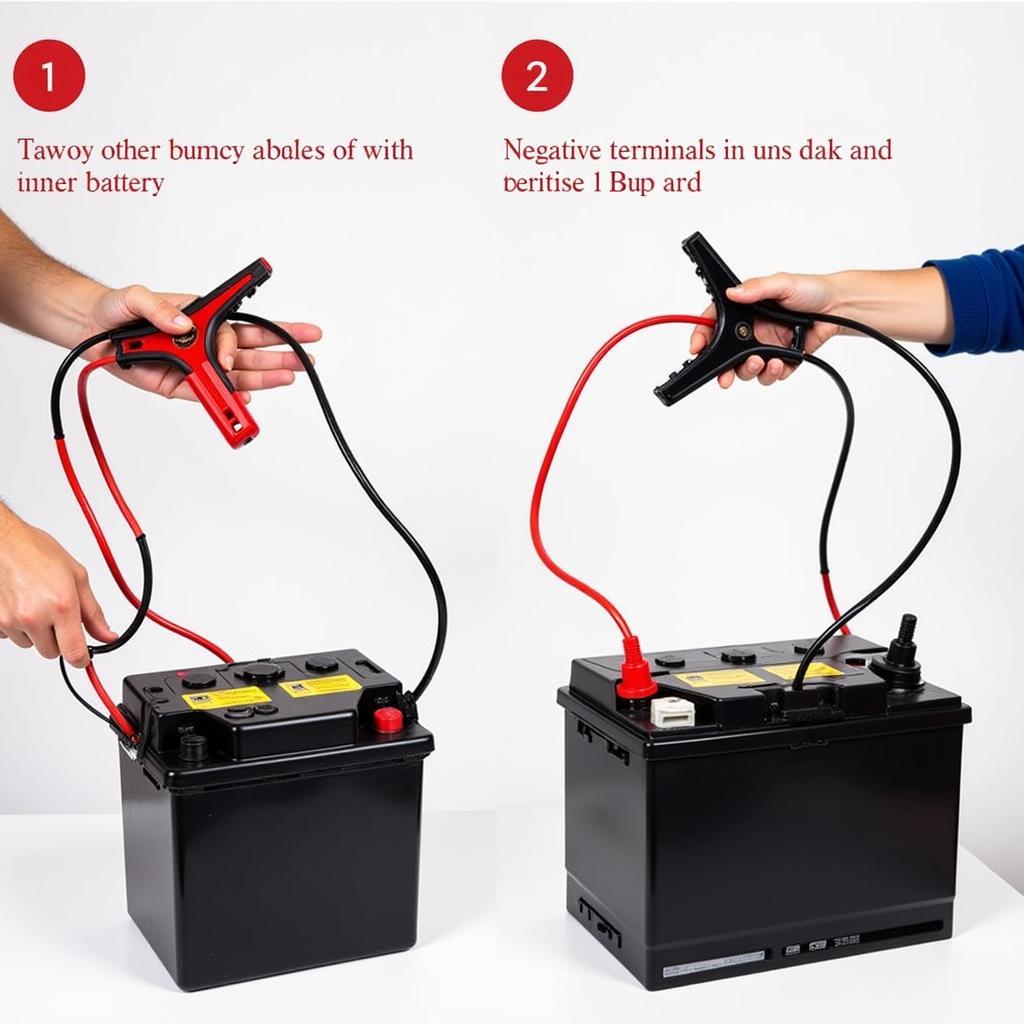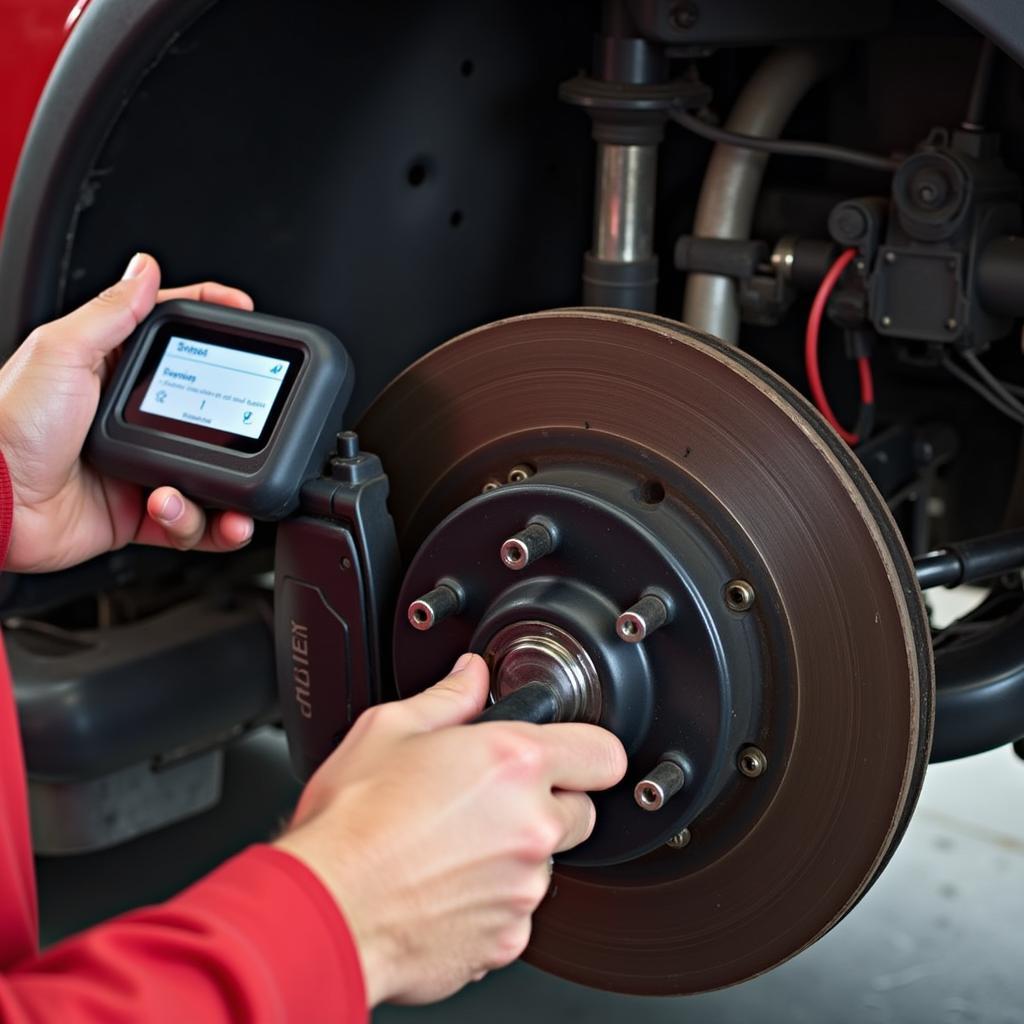If your car battery is dead, you might be wondering if it can recharge itself. Unfortunately, a completely dead car battery rarely recharges on its own. Understanding why requires a look at how car batteries work and what causes them to die. Let’s dive into the details and explore solutions for getting your car back on the road. signs of a bad car battery vs starter
Why Won’t a Dead Car Battery Recharge Itself?
A car battery relies on a chemical reaction to produce electricity. When the battery is discharged, this chemical reaction has essentially run its course. While a slightly drained battery might recover some charge through the alternator once the engine is running, a completely dead battery lacks the initial chemical energy to even start the process. Think of it like a completely empty gas tank – you can’t drive on fumes.
Common Reasons for a Dead Car Battery
Several factors can contribute to a dead car battery:
- Leaving lights on: This is a classic culprit. Leaving headlights, interior lights, or even the trunk light on can drain your battery overnight.
- Extreme temperatures: Both extreme heat and extreme cold can affect a battery’s ability to hold a charge.
- Old age: Car batteries have a limited lifespan, typically 3-5 years. As they age, their capacity to hold a charge diminishes.
- Parasitic drain: Even when the car is off, certain electronic systems can draw small amounts of power, slowly draining the battery over time. This is known as a parasitic drain.
- Faulty alternator: While the alternator recharges the battery while the engine is running, a faulty alternator won’t do its job, leading to a dead battery.
 Dead Car Battery Jump Start
Dead Car Battery Jump Start
Can a Dead Battery Be Revived?
While a dead car battery won’t magically recharge itself, it can often be revived through jump-starting. Jump-starting involves using another vehicle’s battery to provide the initial jolt of power needed to get your engine running. crv dead battery Once your engine is running, your alternator should begin recharging your battery.
Steps to Jump-Start a Car
- Position the vehicles: Park the working vehicle close to yours, ensuring the batteries are accessible.
- Connect the positive cables: Attach the red (positive) clamp to the positive terminal of the dead battery, then to the positive terminal of the working battery.
- Connect the negative cables: Attach the black (negative) clamp to the negative terminal of the working battery. Then, attach the other end to a metal ground on your car, away from the battery (e.g., an unpainted bolt on the engine block).
- Start the working vehicle: Let it run for a few minutes.
- Start your vehicle: If it starts, disconnect the cables in reverse order.
“Jump-starting is a temporary fix,” explains John Smith, Lead Automotive Electrical Engineer at AutoSpark Technologies. “If your battery keeps dying, it’s crucial to identify and address the underlying cause.” new battery completely dead
When to Replace Your Car Battery
If your battery requires frequent jump-starts, or if it’s over three years old, it’s likely time for a replacement. Other signs of a failing battery include:
- Dim headlights
- Slow engine cranking
- Clicking sound when turning the key
- Electrical problems (e.g., flickering interior lights)
“Don’t wait until you’re stranded with a dead battery,” advises Maria Garcia, Certified Automotive Technician. “Regular battery testing can help you avoid unexpected breakdowns.” charged battery wont start car
Conclusion
If your car battery is dead, it won’t recharge itself. Jump-starting can get you back on the road temporarily, but if the problem persists, you’ll likely need a new battery. Regular maintenance and addressing underlying issues, such as a faulty alternator or parasitic drain car battery draining alternator good, can help extend your battery’s life and prevent future headaches.


